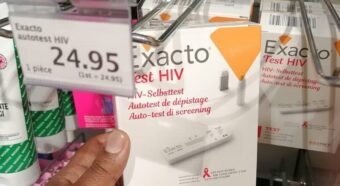Towards an African Voice for the Global Fund
- November 13, 2020
- Non classé
- By Armelle Nyobe

In a period of eight weeks, the constituencies and other critical stakeholders met virtually to provide input into the Global Fund’s future post-2022 strategy. Consultations kicked-off on August 12, 2020 and brought together more than 500 delegates from across the continent and concluded on October 7, 2020.
The Global Fund’s current strategy is coming to an end and the global partnership has initiated the process of developing its post-2022 strategy. In keeping with its mission of driving policy dialogue and consensus with African constituencies, the African Constituency Bureau initiated a series of consultations with WCA and ESA countries to help ensure that Africa’s voice is heard and emerges on key issues of strategic importance for the Global Fund’s post-2022 strategy. The continent is the most burdened in the world by AIDS, Malaria and Tuberculosis and with 70% of GF resources being infused into East and Southern Africa and West and Central Africa, it is important for Africa to be fully engaged in the development of the new strategy so that, as Dozie Ezechukwu, CCM Nigeria’s Permanent Secretary, put it, we may be able to ” learn from implementation”.
African constituencies were mobilized through a bottom-up approach based on a stakeholder engagement plan that defined the themes but also the methodology. This was implemented in two phases.
In the first phase, fifteen pre-determined strategic areas were discussed in a pragmatic approach aimed at ensuring full coverage of all policy areas.Consultations involved the participation of representatives of Country Coordinating Mechanisms, subject matter experts, academics, technocrats, global health experts, and representatives of civil society and international organizations. At each consultation, experts on the identified topics made a presentation to provide the context, challenges and progress, thus setting the stage for discussions that focused on three questions:
• What progress and success have we made with respect to the topic at hand over the last 10 years?
• What are the remaining challenges and gaps impeding progress?
• What should African countries focus on during the next Global Fund strategy?
This first phase allowed all stakeholders to agree on common positions on each theme.
Phase 2, on the other hand, was marked by the coding of qualitative data into thematic areas, which resulted in the classification of the fifteen strategic areas into three main groups:
• Health service delivery with themes such as HIV prevention among adolescent girls and young women and key vulnerable populations, and missing TB cases;
• Resilient and sustainable systems for health addressing aspects of governance, health financing, human resources for health and community systems strengthening, Health Management Information Systems (HMIS), etc.; and
• Emergingareas of interestin public health that encompass themes such as human rights, equity and gender, co-morbidities with non-communicable diseases (NCDs) and demographic shifts, displacement fragility &instability to name but a few.
While this process generated a significant number of useful recommendations to the Global Fund, the list was subjected to further analysis to generate what would be the African Constituents 7 top asks. This would ensure that the asks are focused on what would be most critical while having a reasonable number of issues to work with.
The circle was completedon November 2nd at the African Constituencies Annual Consultative Meeting when countries agreed validated the 7 top asks to the Global Fund. During the same meeting, West and Central Africa consolidated the priorities they think would allow the region to emerge from its lethargy.
These priorities will be the subject of an advocacy campaign in the coming days.
Armelle Nyobe


